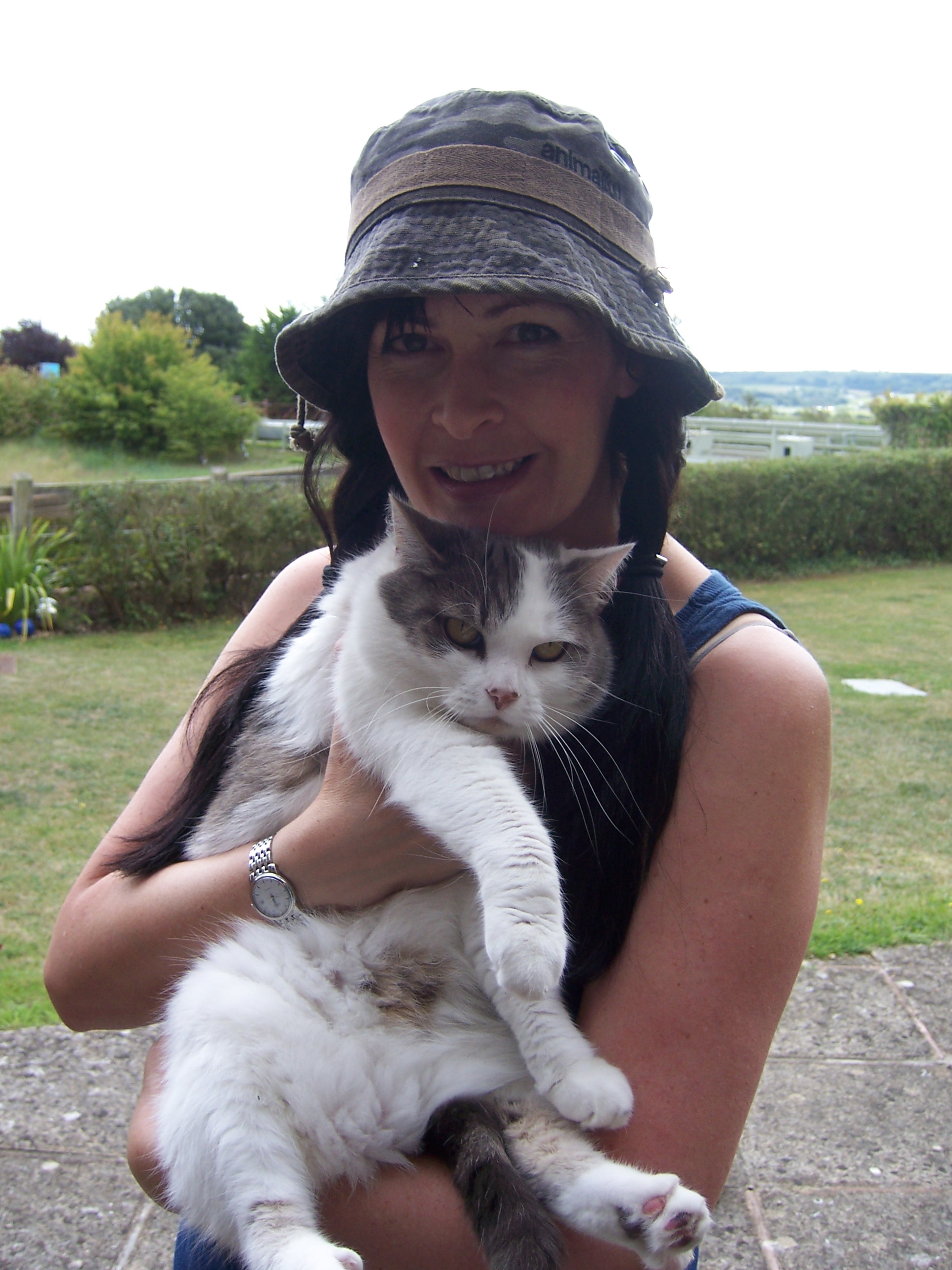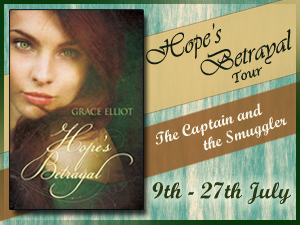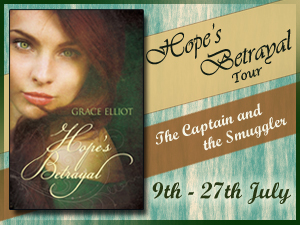 I’d like to welcome today’s special guest, Grace Elliot. Grace is the author of The Huntley Trilogy; Eulogy’s Secret, Hope’s Betrayal (review here) and the forthcoming Verity’s Lies, as well as her extremely favorably received debut, A Dead Man’s Debt. Reviewers have been comparing Ms. Elliot to Georgette Heyer. High praise, indeed!
I’d like to welcome today’s special guest, Grace Elliot. Grace is the author of The Huntley Trilogy; Eulogy’s Secret, Hope’s Betrayal (review here) and the forthcoming Verity’s Lies, as well as her extremely favorably received debut, A Dead Man’s Debt. Reviewers have been comparing Ms. Elliot to Georgette Heyer. High praise, indeed!
I enjoyed the glimpse into the hardships that drove people into the smugglers’ life, as embodied in the heroine of Hope’s Betrayal. But as Ms. Elliot tells us in her guest post, there was more reality in the story than I thought.
Read on for the details…
Blue Plaque Inspiration*
Hello, it’s lovely to be here and thank you to Marlene for hosting me. I love Marlene’s strap line, ‘Escape reality, read fiction,’ and it inspired me to post about how real life inspired my latest historical romance, ‘Hope’s Betrayal.’
Everyone needs an escape from the pressures of everyday life and one of my safety valves is visiting theIsle of Wight. It is a beautiful, tranquil place with secret beaches, ever changing seas and wonderful wildlife – especially birds. We are lucky enough to stay within sight of the sea, in a place where the village green is flanked by Georgian fishermen’s cottages. The pace of life is so relaxing there, plenty of time for walks, reading and letting the imagination run riot – which brings me back to the inspiration behind ‘Hope’s Betrayal.’
In the 17th and 18th century the long coastline, with secluded inlets and treacherous shallows, made it an ideal for the local fishermen to take up the lucrative business of smuggling. On one of my walks in the village, I spotted a blue-plaque (*) mounted amongst the wisteria on a cottage wall. The plaque marked the birth place of a fisherman’s daughter, born in 1792, who eventually married a Prince from the royal house of Bourbon. This whetted my appetite to find out more and I started researching the ‘Lady of Chantilly.’
I found out that this woman, a humble fisherman’s daughter, was reputedly so beautiful that when caught smuggling, the Revenue officer couldn’t bring himself to arrest her. Now whether this local lore is true, or a romantic embellishment of the facts, it set my writer’s mind whirling. What a fantastic starting point for a story – the tension between two people, who live on opposite sides of the law, falling in love! Which would be stronger: the values they were raised with, or their love? What would be the price of such a love?
And thus ‘Hope’s Betrayal’, was born:
(* – In the UK, places of special note, i.e. birth places of famous writers, politicians, etc. are marked by a blue-plaque on the wall which lists the details of their life.)
Situated in the Solent, just off the south coast of England, the Island has a rich maritime history, and one especially linked with smuggling. In the 17th and 18th centuries it was a perfect stop over for fisherman secretly importing goods from France to England.
*****
Hope’s Betrayal (The Huntley Trilogy, Book 2)
One wild, winter’s night two worlds collide.
Known for his ruthless efficiency, Captain George Huntley is sent to stamp out smuggling on the south coast of England. On a night raid, the Captain captures a smuggler, but finds his troubles are just beginning when the lad turns out to be a lass, Hope Tyler.
With Hope as bait, the Captain sets a trap to catch the rest of the gang. But in a battle of wills, with his reputation at stake, George Huntley starts to respect feisty, independent Hope. Challenged by her sea-green eyes and stubborn loyalty Huntley now faces a new threat – his growing attraction to a sworn enemy. And a love where either Hope betrays her own kind, or Captain Huntley is court-martialed, is not an easy destiny to follow.
A little more about the author, Grace Elliot:
Grace Elliot leads a double life as a veterinarian by day and author of historical romance by night. Grace believes intelligent people need to read romance as an antidote to the modern world. As an avid reader of historicals she turned to writing as a release from the emotionally draining side of veterinary work.
Grace lives near London and is addicted to cats. The Elliot household consists of five cats, two teenage sons, one husband, a guinea pig – and the latest addition – a bearded dragon!
You can follow Grace on her blog “Fall in Love With History.” or her Grace Elliot website and of course Facebook and twitter.
I’d like to thank Grace for being here today, and for this fascinating glimpse into the writing of Hope’s Betrayal. And also for that marvelous cat picture! He does not look best pleased to be photographed. I’ve seen that disgruntled expression before. I think there’s another story there!




